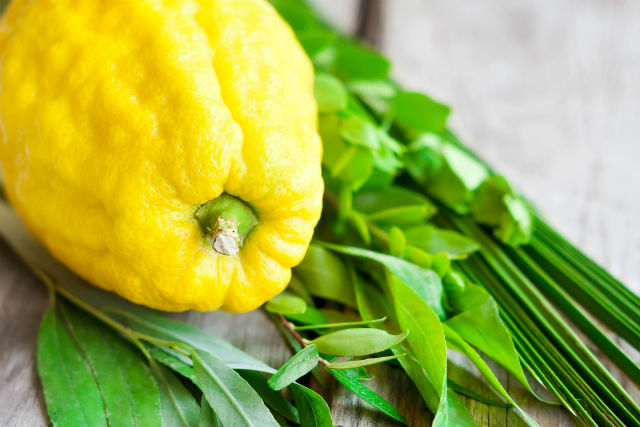Well, first thing’s first: what is an etrog?
The etrog is a medium size fruit that sort of looks like a bumpy lemon and is also referred to as a citron. It has a lemon scent and flavor, though it is far less juicy than a lemon. The etrog is an important item used for the Jewish festival holiday called Sukkot. It is kind of expensive to buy and some years it is even more rare due to the weather and farming.
After purchasing such an expensive fruit and using it a few times during the Sukkot holiday, you might be left wondering afterwards: well, now what?
So can you eat it?
The Nosher celebrates the traditions and recipes that have brought Jews together for centuries. Donate today to keep The Nosher's stories and recipes accessible to all.
Actually, you can eat an etrog, though the preparation may be a little more time consuming than some other kitchen projects. Nevertheless, there are an array of recipes to use up that expensive etrog.
Note: This past year was a shemitah (sabbatical) year in Israel, so if your etrog came from Israel, the etrog is actually supposed to be consumed and not discarded, because edible shemitah produce is considered sacred. Though as JTA recently reported many etrogs this year actually came from Morocco!
If you are ready to get adventurous with your etrog, here are a few recipes to try:
Etrog Jam from The Kosher Foodies
Candied Etrog from Four Pounds Flour
Etrog Liquor from Couldn’t Be Parve
Etrog Cake from Sauce Magazine
Etrog Drop Cookies with Etrog Salt from Kitchen-Tested
Love Jewish food? Sign up for our weekly Nosher recipe newsletter!
etrog
Pronounced: ETT-rahg, Origin: Hebrew, a citron, or large yellow citrus fruit that is one of four species (the others are willow, myrtle and palm) shaken together as a ritual during the holiday of Sukkot.
Sukkot
Pronounced: sue-KOTE, or SOOH-kuss (oo as in book), Origin: Hebrew, a harvest festival in which Jews eat inside temporary huts, falls in the Jewish month of Tishrei, which usually coincides with September or October.




